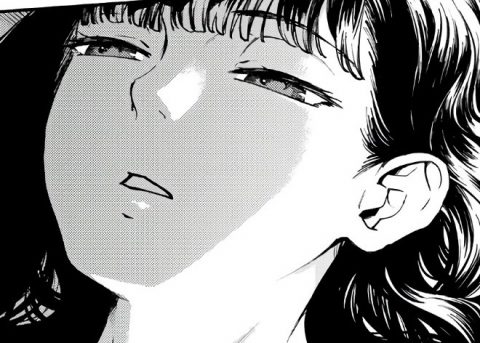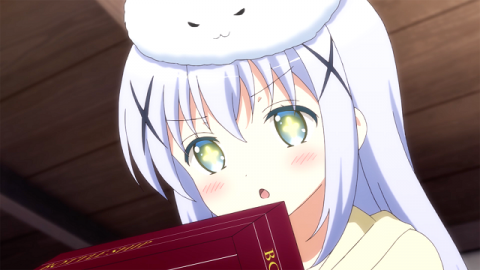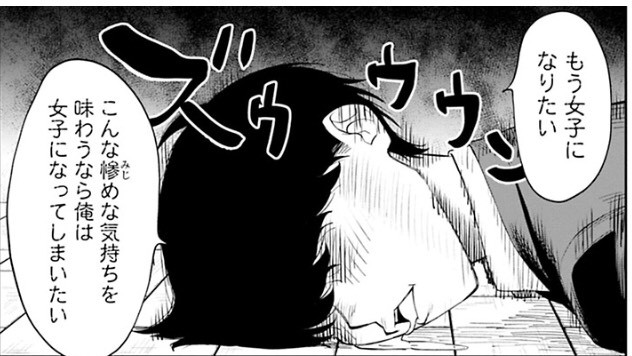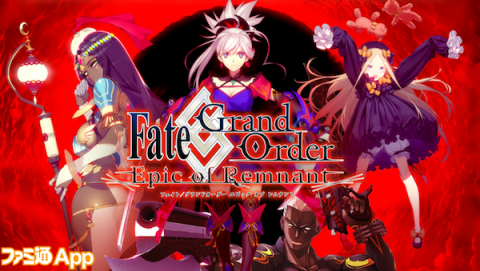When asked, "Have you read any romantic comedies recently?", anime otaku have only two responses: a super-positive response of, "I love romantic comedies! In fact, I think I only watch romantic comedies!" and a negative response of, "No, they're not that deep, so I don't watch them that much." As with this work, romantic comedies often contain extreme language that makes readers' hearts race, and it can be said that they're a genre that requires a lot of energy to read. While adult fans who read them for emotional nourishment after work may be one thing, for high school and college students in the midst of adolescence, reading a romantic comedy requires more courage and effort than works in other genres. And above all, they're concerned about what others think. If you were to boast, "I love romantic comedies!" during your class introduction at the start of the new semester, you'd likely receive cold stares from the girls. With Ghibli films, which are also animated works, or pop anime aimed at children, conversations tend to expand with things like, "I like that too!" or "That character is so cute!", but that's not the case with romantic comedies. However, despite this somewhat unfortunate situation for romantic comedies, many recent romantic comedies depict social issues and the values of young people in more detail than other works, and are no longer simply about smiling as you watch the main character flirt with a cute heroine. So, for readers who are a little hesitant about romantic comedies, I would like to introduce the depth of true romantic comedy using this work, "Rent-A-Girlfriend" as a subject!
Prejudice against romantic comedies
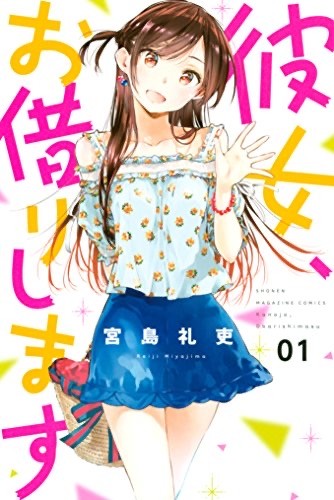
The biggest obstacle to discussing the appeal of romantic comedies is the public's prejudice against them.
Do they seem stupid?
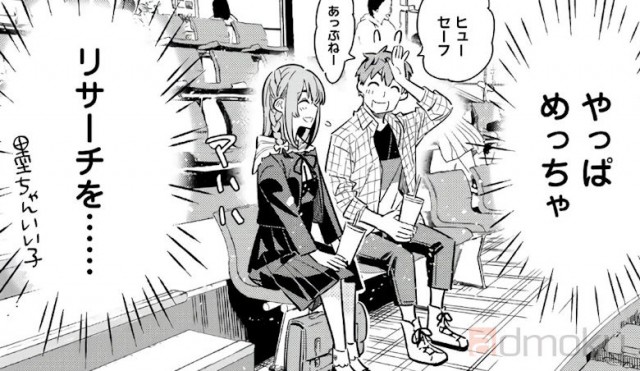
When it comes to romantic comedies, many people seem to think that they're just a waste of time, with the hero and heroine simply flirting and not engaging in any meaningful way. In recent years, feature-length animated films have increasingly won prestigious awards in the film industry, and the depth of anime has been gaining more attention. However, when it comes to romantic comedies, the perception that they are still childish remains.
It's hard to bring it up
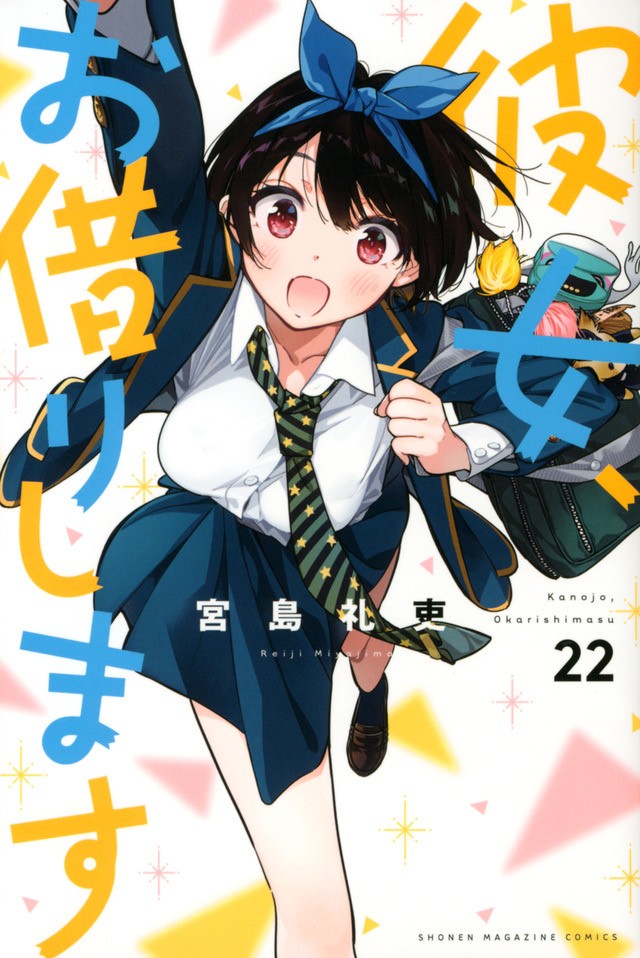
As a result, as mentioned at the beginning, it's difficult to publicly declare, "I love romantic comedies!" The worry that watching romantic comedies might make people think I'm somehow unpopular and unsociable is lingering in my mind.
Considering the themes of romantic comedies from this work

However, romantic comedies are by no means just about swooning over pictures of cute girls. Just like romance novels, they also delve into modern social issues and the troubles of young people by depicting love between men and women, making us think like philosophical thinkers.
This work presents the romantic perspectives of today's young people.

For example, this work delves deeply into the "modern young people's romantic perspectives." However, rather than Kazuya being swept up in the action with cute girls, the story explores themes such as "What kind of romantic relationships do young people today have, and what do they think?" while also depicting the superficial appeal.
Why did they focus on the grandparents' generation?
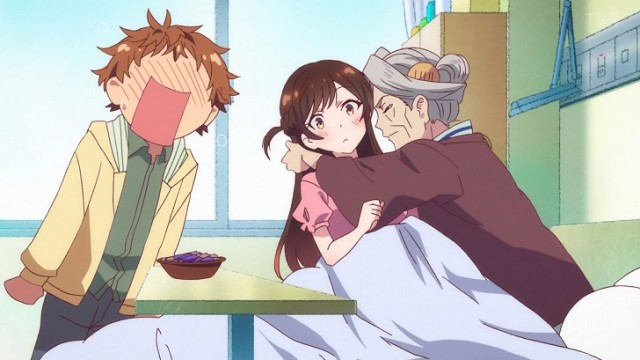
One thing to note in particular is that many of the key characters in this work are college students, the same generation as Kazuya and his friends, and the silver generation, the same generation as Kazuya's grandparents. After reading this work, many readers may wonder, "Why are there so many characters from the grandparents' generation?" Surely it's fine to contrast them with the father's and mother's generation, right? In fact, this strange character setting hides a major ingenious twist related to the work's theme.
The perspective of the grandparents emphasizes the uniqueness of the "rental girlfriend"
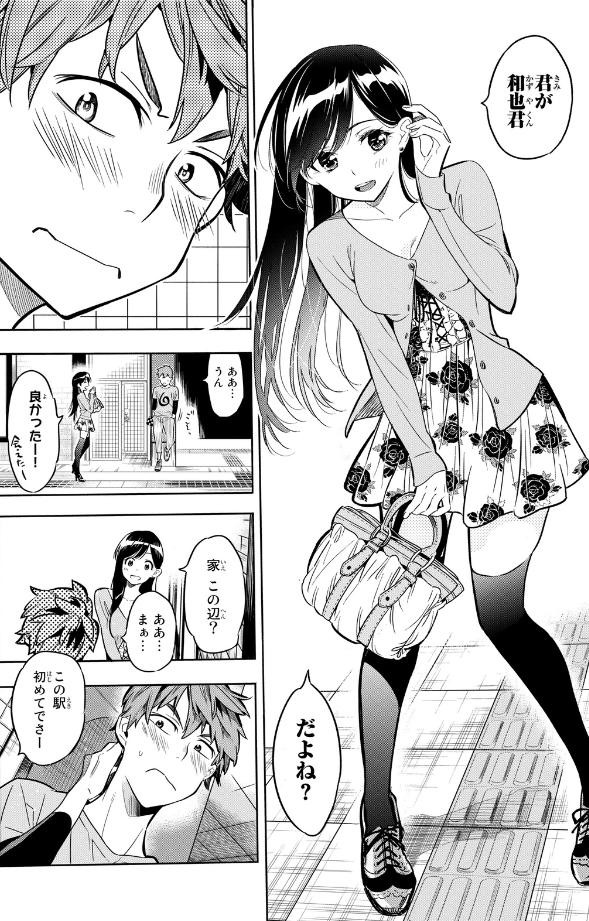
What is the most memorable setting of this work? When asked this question, many readers will answer, "The fact that the heroine is not a real girlfriend, but a rental girlfriend." The rental girlfriend occupation is quite unique, isn't it? Until recently, this type of occupation was unheard of. This work attempts to present modern romance through the existence of this recently emerging "rental girlfriend." Therefore, by placing the adults involved with the protagonist from the grandparents' generation, an even more analog generation than her parents', the cutting-edge occupation of "rental girlfriend" and the analog people of the Showa era are removed, making the work's theme easier to portray.
What kind of era is the modern era?
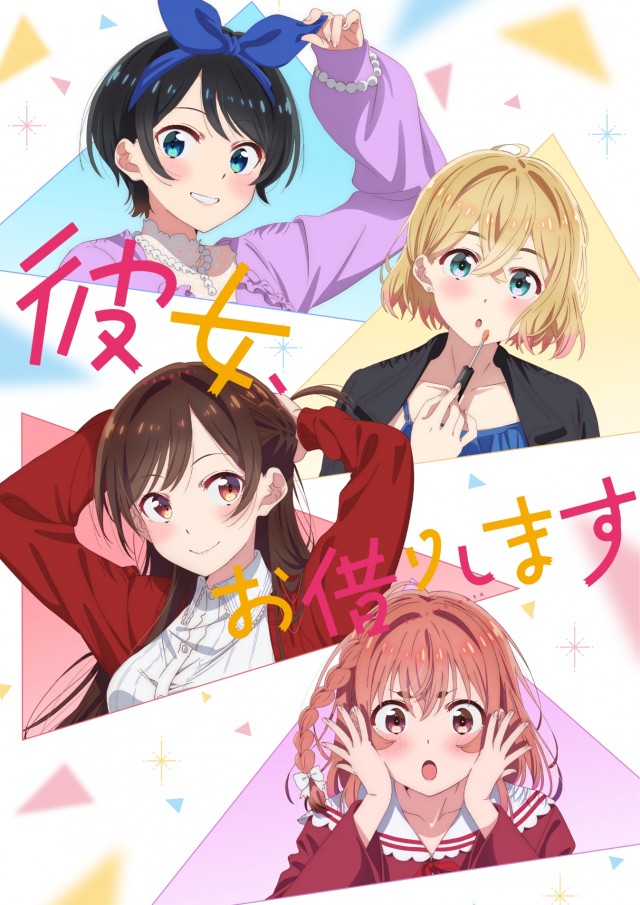
So, what kind of era is the modern era depicted in this work? You might be asking, "Since this is the world we live in now, is there really any need to analyze it again?" But from here on, I'd like to delve deeper into the author's concept of "modern society" in order to analyze the work's themes in more detail.
Showa Values
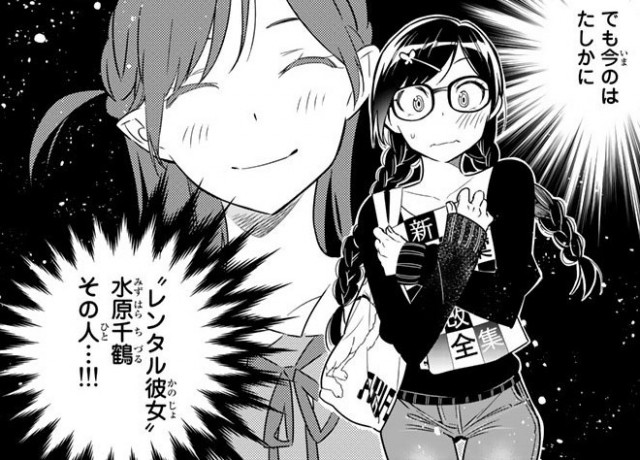
One major difference between the Showa era, our grandparents' generation, and the modern Reiwa era is the widespread adoption of subscription services and renting items. During the Showa era, rapid economic growth began, making many previously unavailable products available. With each paycheck, people bought the three sacred treasures: televisions, washing machines, and refrigerators, dramatically changing their lifestyles.
Reiwa Values

Meanwhile, in the Reiwa era, rather than spending money on single items, people can now use things more efficiently by temporarily renting them. This hasn't just been the rise of rental cars and rental offices; in recent years, even girlfriends can now be rented.
The same can be said for anime works

This can also be said for anime works. Until recently, the only way to watch anime as much as you wanted was to purchase DVDs. However, in recent years, subscription services have emerged that allow you to watch as much as you want for a monthly fee, and the opportunities to purchase anime DVDs have decreased. As a result, the idea that "it's easier to rent as many as you need when you need them" rather than owning them is becoming mainstream.
Disparity with Showa-era Values
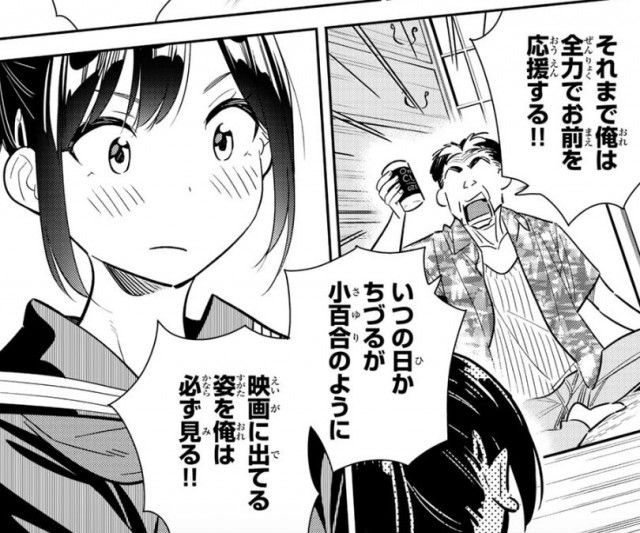
The difference in attitudes toward ownership between the Showa and Reiwa eras, as explained above, is depicted in this work as a gap between the values of the grandparents' generation and those of the younger generation.
In a Showa-era romantic comedy, Ruka would have been the heroine...
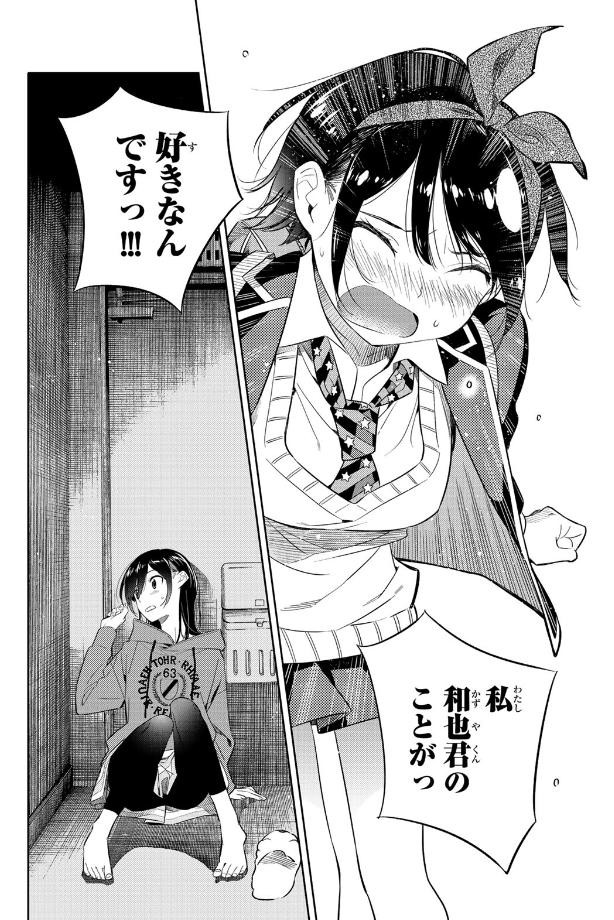
In a Showa-era romantic comedy, Ruka would undoubtedly have been the heroine, not Chizuru. She views Kazuya more positively than anyone else, and has a stronger desire than anyone else to make him hers. The strength of her feelings pushes aside Chizuru, who is out of her league, and wins Kazuya over, a storyline that's perfectly suited to Showa-era romantic comedies. Plus, she's a tragic, ill-fated heroine, so the reason she's neglected in this work wouldn't be typical of a romantic comedy.
Why Chizuru is Out of Reach
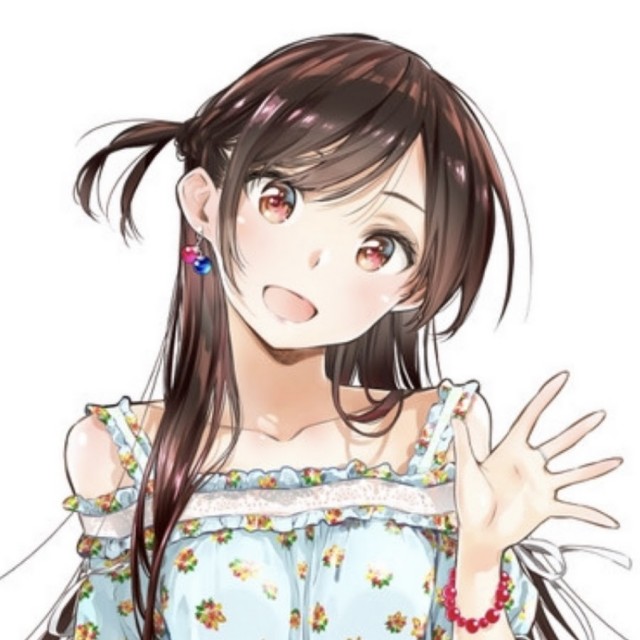
So why is the main heroine of this work the out-of-reach Chizuru, rather than the familiar Ruka? The reason becomes clear by digging deeper into the values of today's young people, as mentioned earlier. Let's dig deeper, focusing on the fact that today's young people live in an age where they can rent the item that best suits them from a vast array of options.
"Fateful Encounters" Don't Exist in the Modern Era
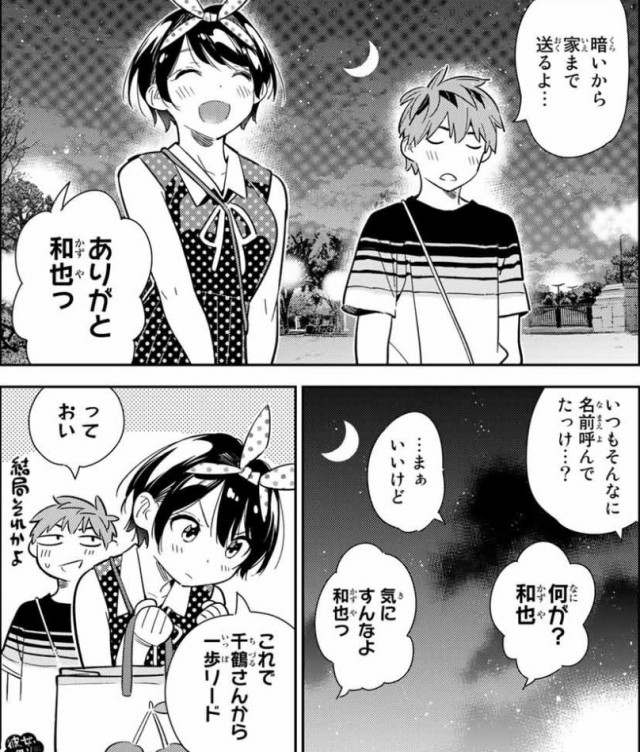
For example, in the Showa era, "fateful encounters" were possible when it came to movies. You might happen to see an advertisement in a movie theater or be captivated by a poster. However, such fateful encounters are becoming less common these days. By carefully selecting the perfect movie for you from a vast selection of movies available via subscription, you can choose the one that's best for you. You can choose the best movie with more certainty than fate.
Today's Youth and "Oshi Culture"
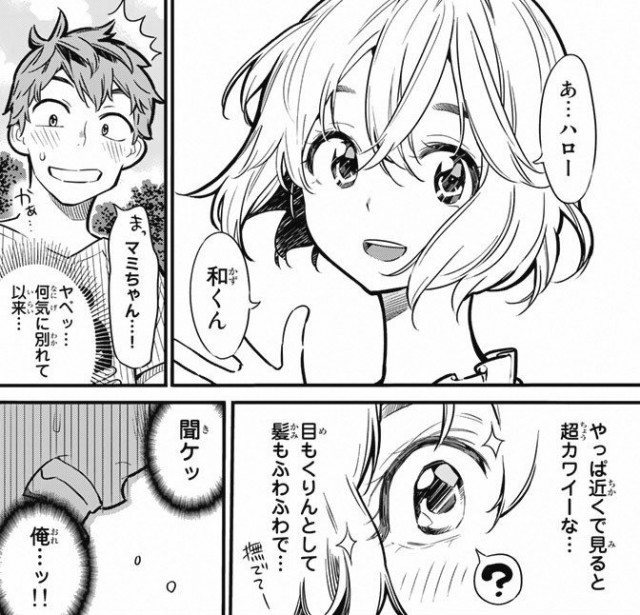
This also applies to romantic interests. Until now, the number of members of the opposite sex available to us was limited to idols and actors. However, today, with the rise of social media, we can search for an infinite number of attractive members of the opposite sex. As a result, we can now fall in love not with someone close to us, but with someone who is our ideal match, visible online (this is what we call "oshi").
I want to get closer to that girl out of my league!!
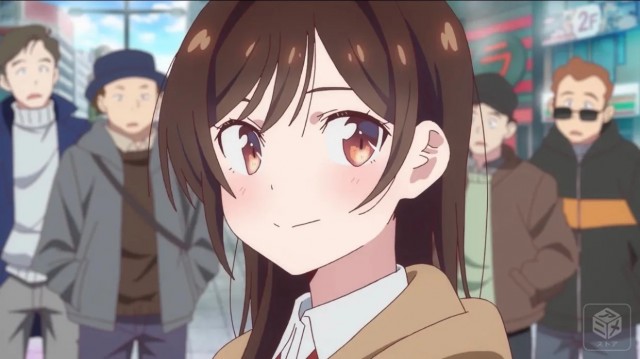
It's precisely because so many young people have this mindset these days that the heroine of this work, Chizuru, is the No. 1 promising new rental girlfriend. They want to get even a little closer to someone they wouldn't normally be able to touch! Perhaps this work depicts the heartfelt cry of many young people like them.
Affirming Today's Youth
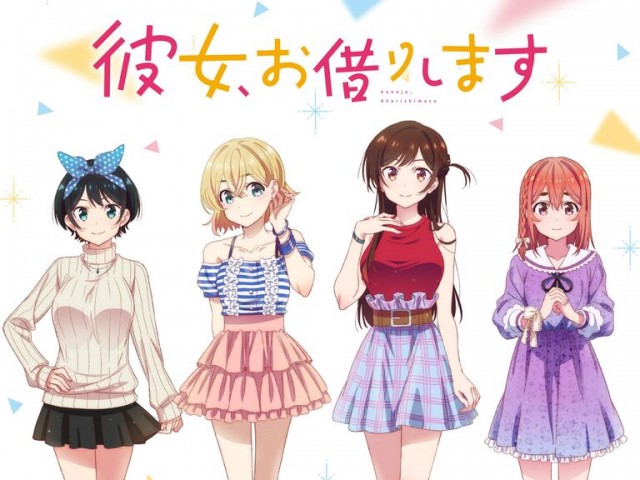
So, is this work criticizing these "young people who can't own things"? I don't think so. From here, I'd like to think more deeply about the message this work is sending to us, the young readers.
Depicting the True Nature of People Who Still Remain Unchanging
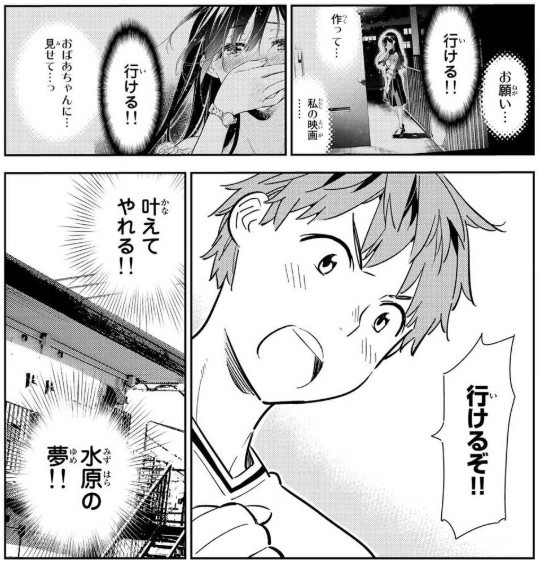
First of all, one thing I absolutely must not overlook about this story is that, despite many twists and turns, the protagonist Kazuya's words, actions, and behavior ultimately come together. At the beginning of the story, Kazuya's way of thinking is often highlighted as being different from that of the Showa generation, but as the story nears its end, his words and actions begin to align with those of Chizuru's late grandfather. From this scene, we can see that this work is trying to convey the message that "values and attitudes toward love change, but the fundamental feelings of loving someone never change."
Feelings for loved ones don't change, whether they're rental or family
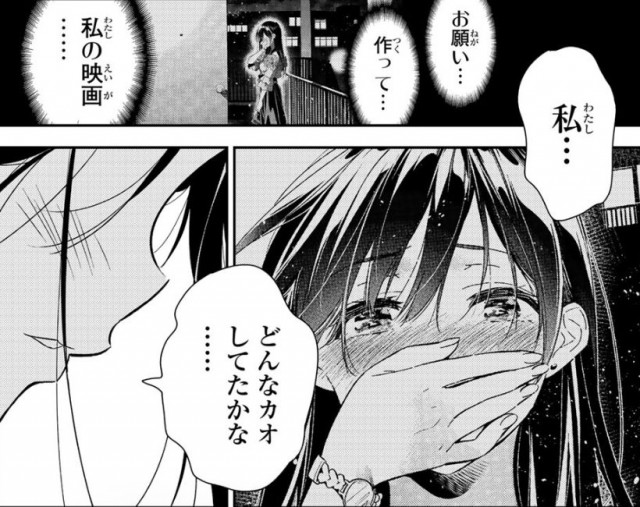
Chizuru's grandfather always told her, "Your dream of becoming an actress will definitely come true someday," but he never saw her as an actress. His way of thinking was very Showa-era: "If you keep wishing for it, your dream will definitely come true!" Kazuya, in turn, began to boast, "Chizuru's dream will definitely come true!" Unlike the Showa generation, Kazuya and Chizuru's relationship was fake, as they were rental girlfriends. However, Kazuya's desire to truly believe in the people he loved, no matter how fake, was able to share the same desire as his grandfather, who was his real family.
Considering How Young People Should Live Today
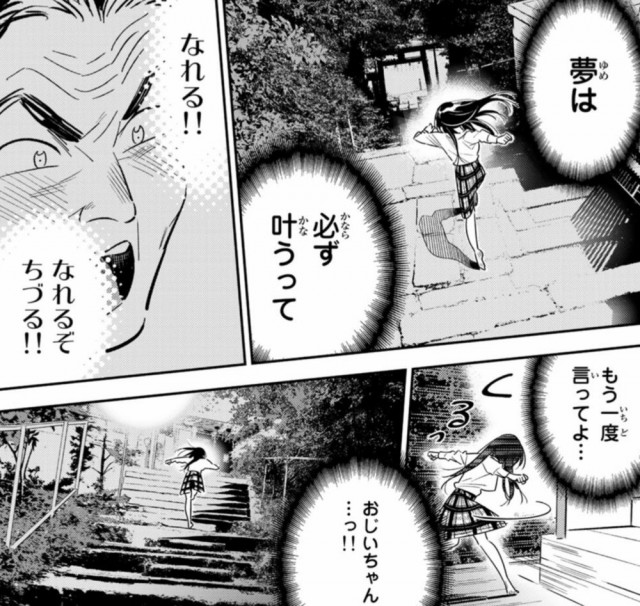
The sense of ownership has faded in today's world. Opening your smartphone makes you feel like you're surrounded by beautiful people. You can rent a cute girlfriend anywhere. The values of the Showa era, when "high economic growth led to an increase in the number of possessions," have changed dramatically. In such an era, old-fashioned romantic comedies that suggest "if you continue to care for someone, your feelings will always be conveyed," may not be popular. However, even in this transitional era, as this work points out, the essence of "the feeling of falling in love" remains unchanged, and the message of "the joy of falling in love" conveyed by romantic comedies may continue to be passed down as its essence into the future.
Summary
What did you think? Romantic comedies tend to be overlooked, but if you look closely, you'll notice that the authors are hiding many mysterious messages for us. It's easy to get distracted by the visuals and think they're shallow, but some romantic comedies, like this one, skillfully incorporate social satire, so be sure to pay attention to other romantic comedies as well!

